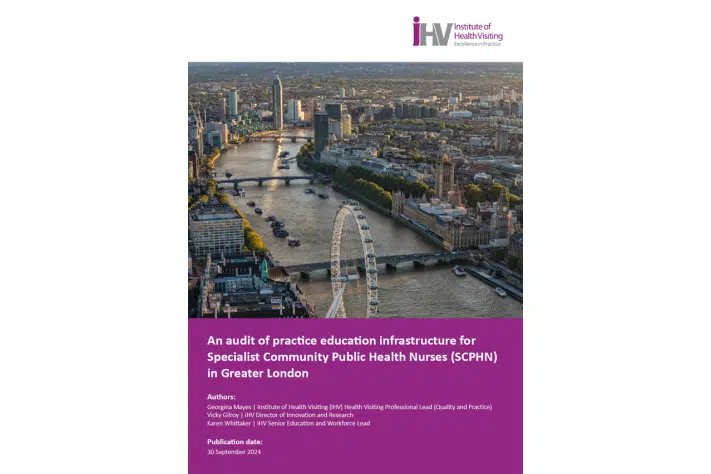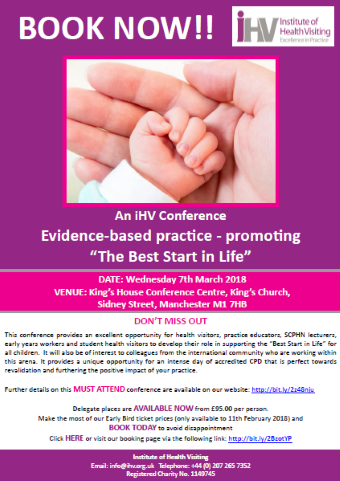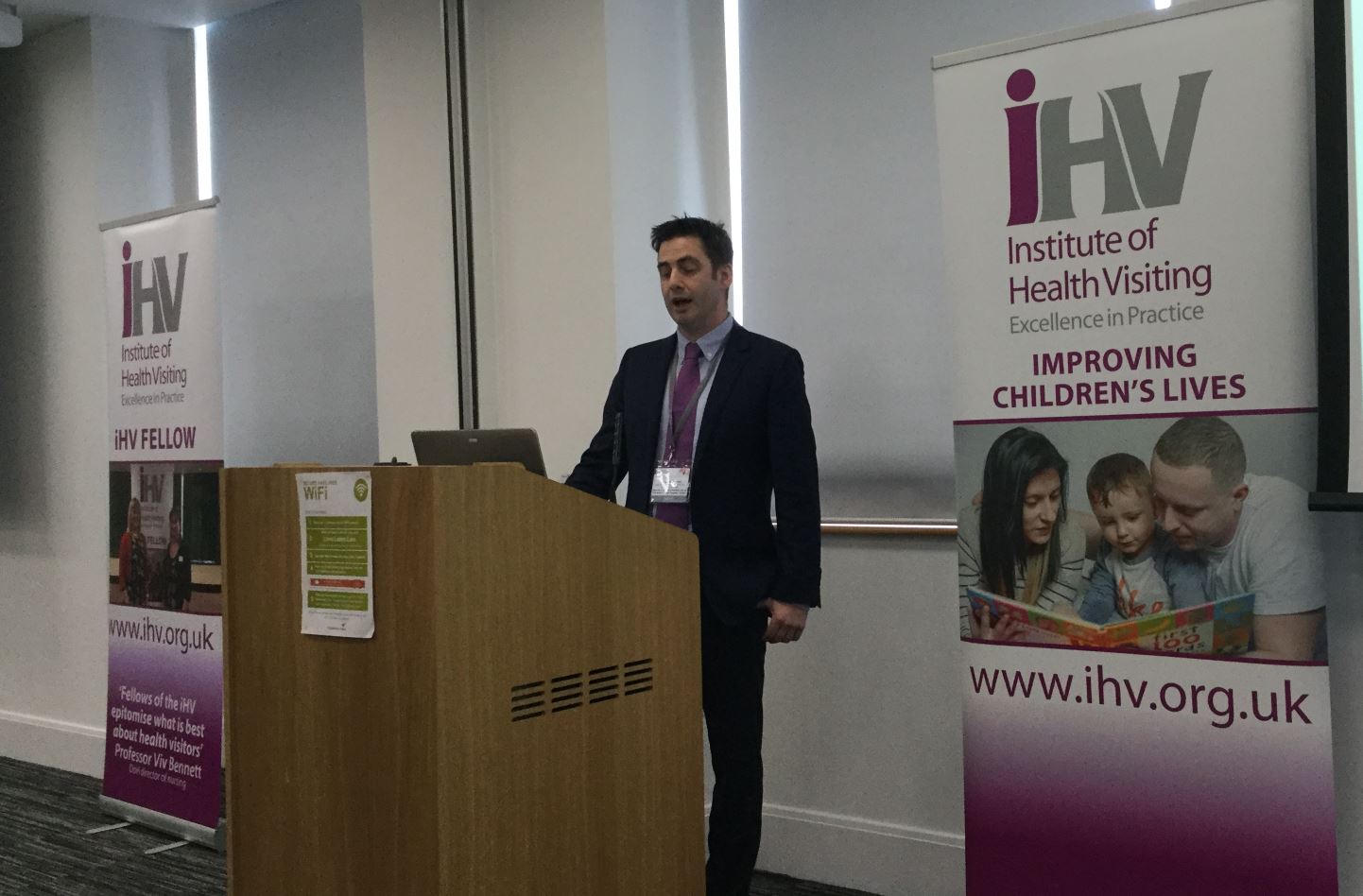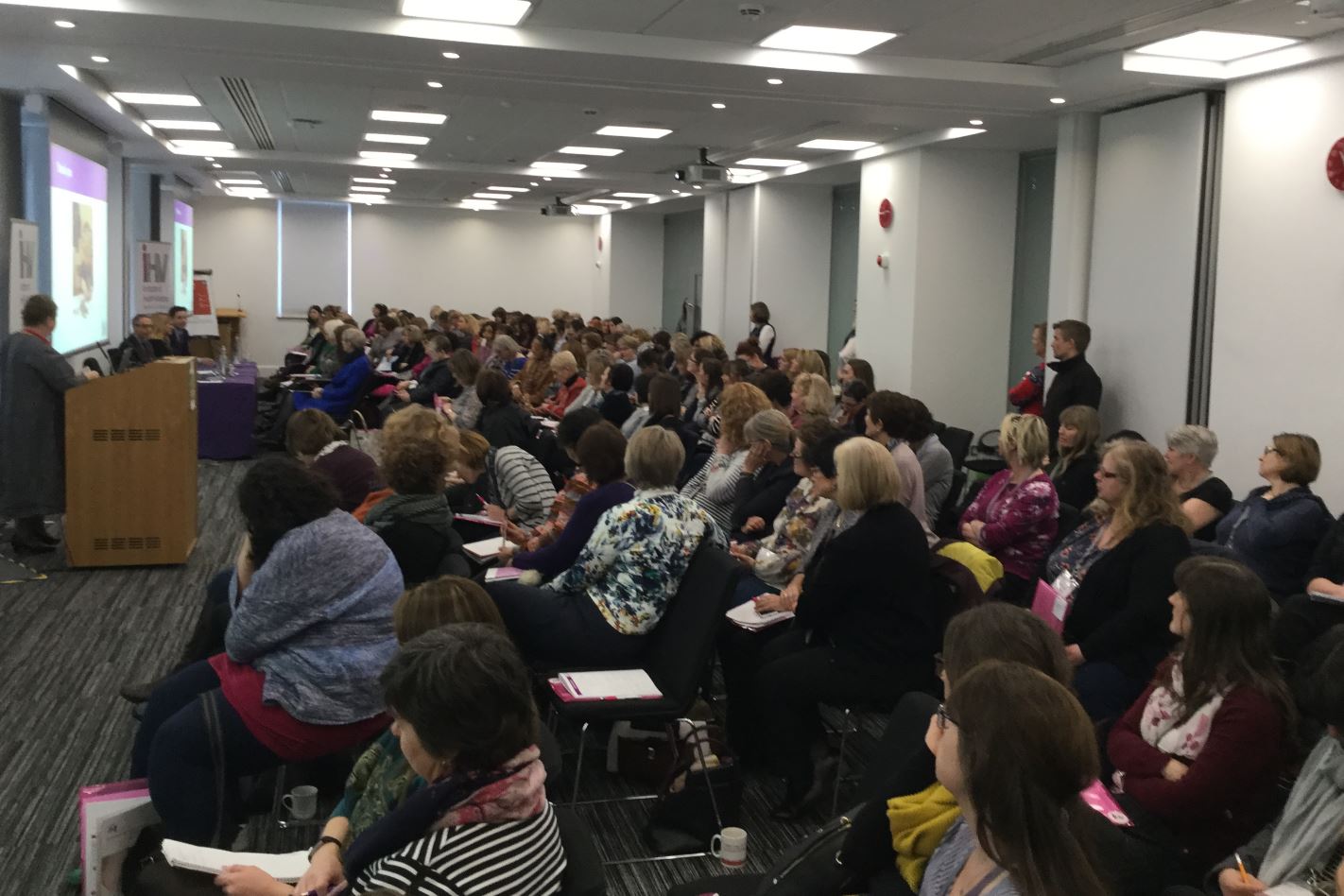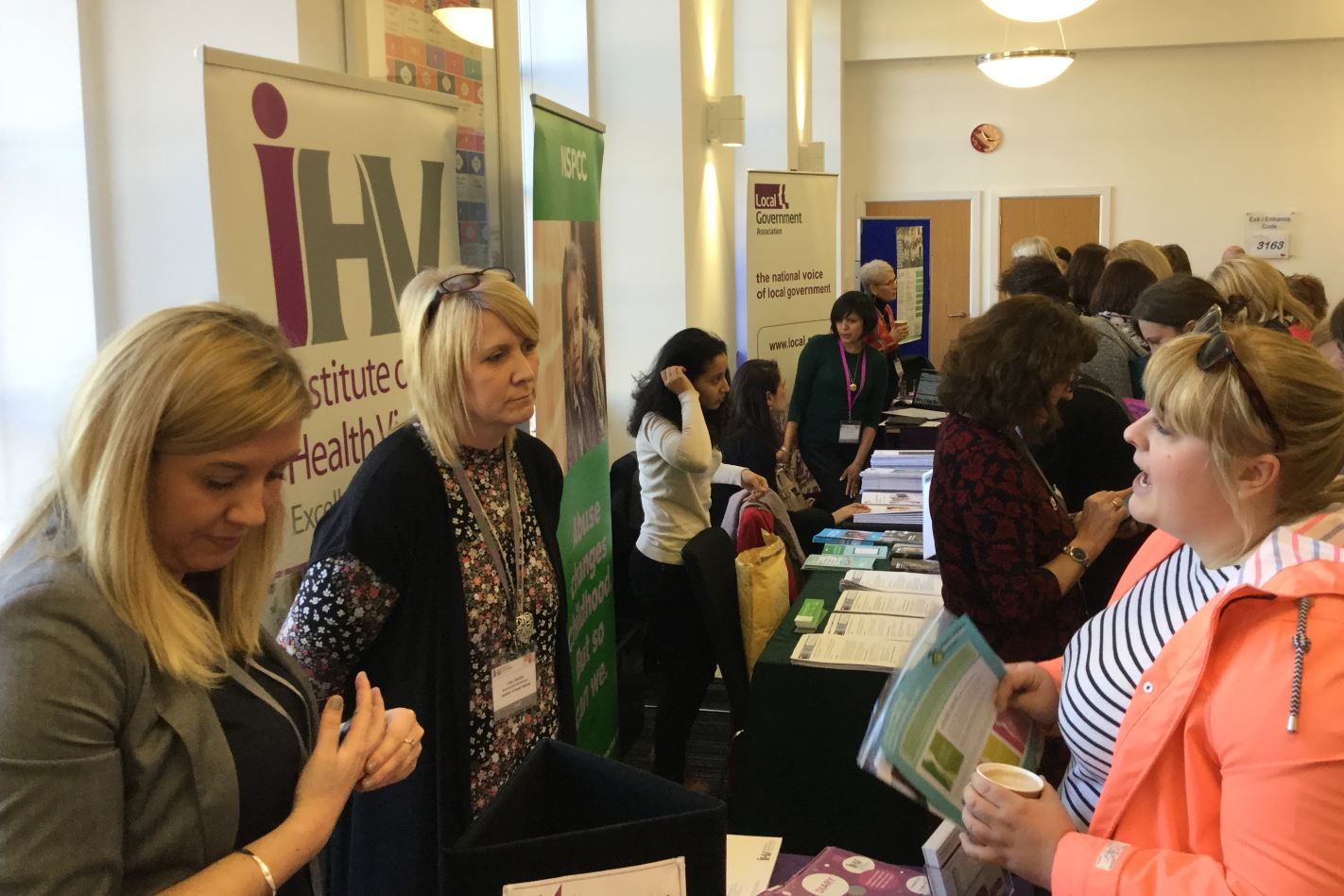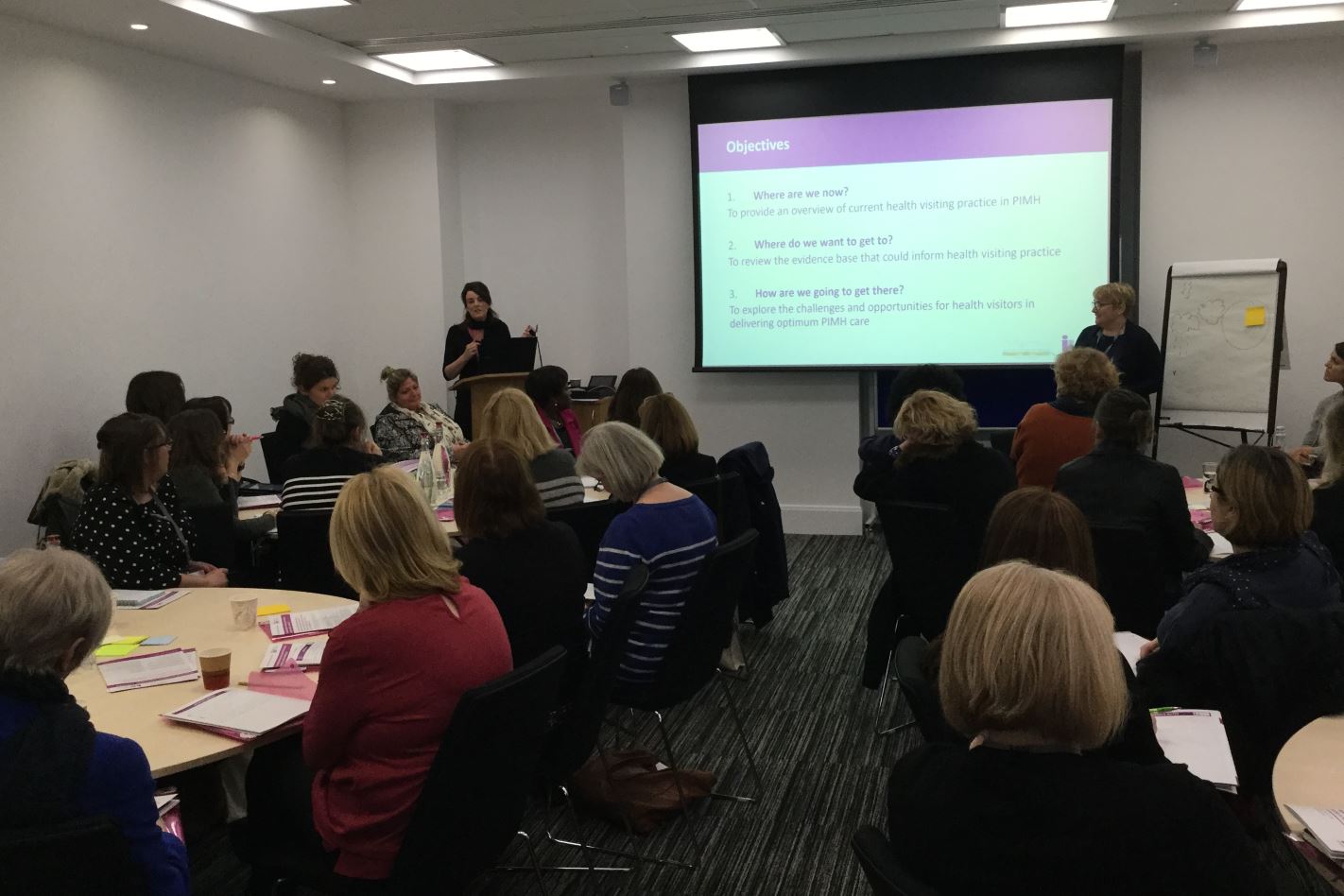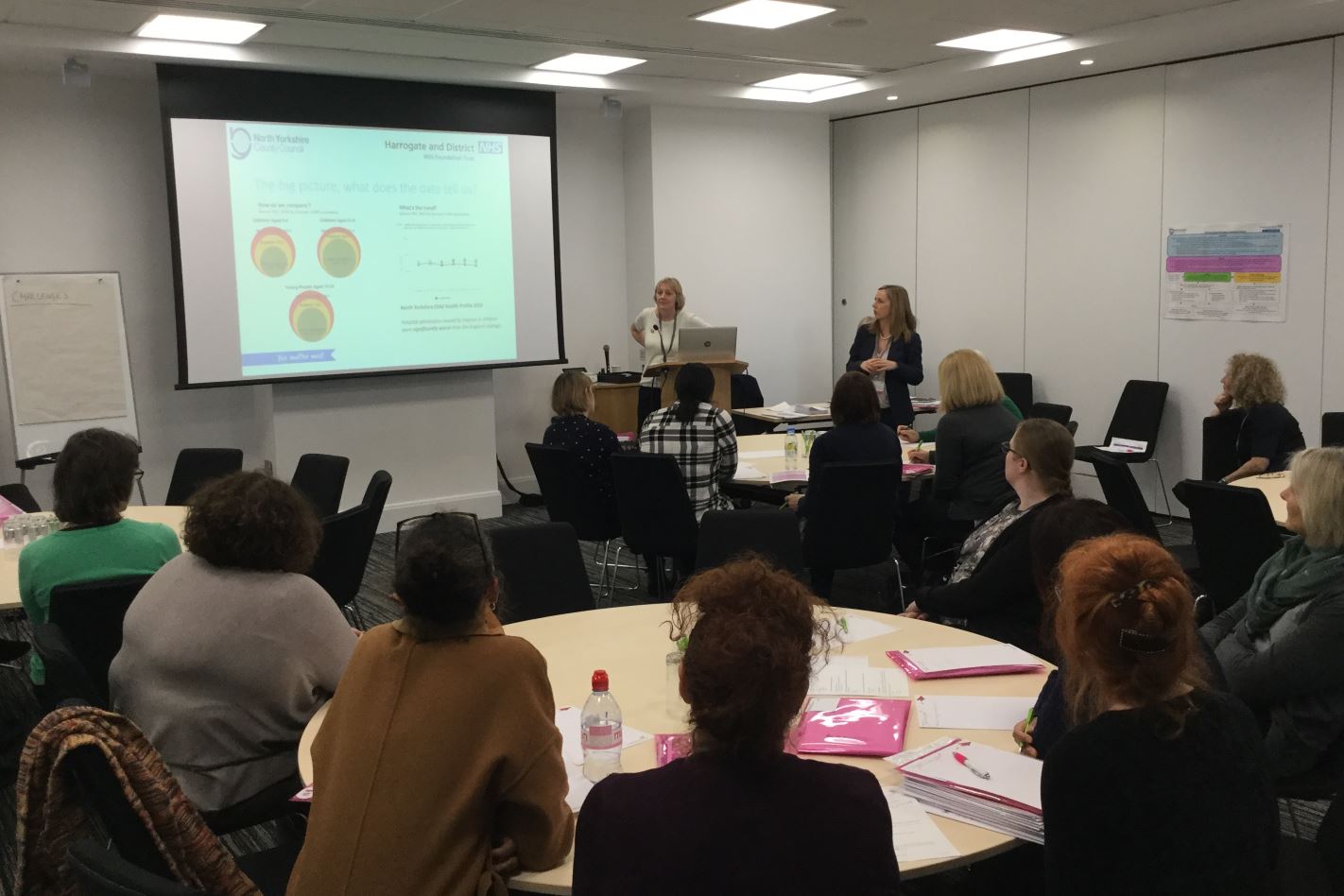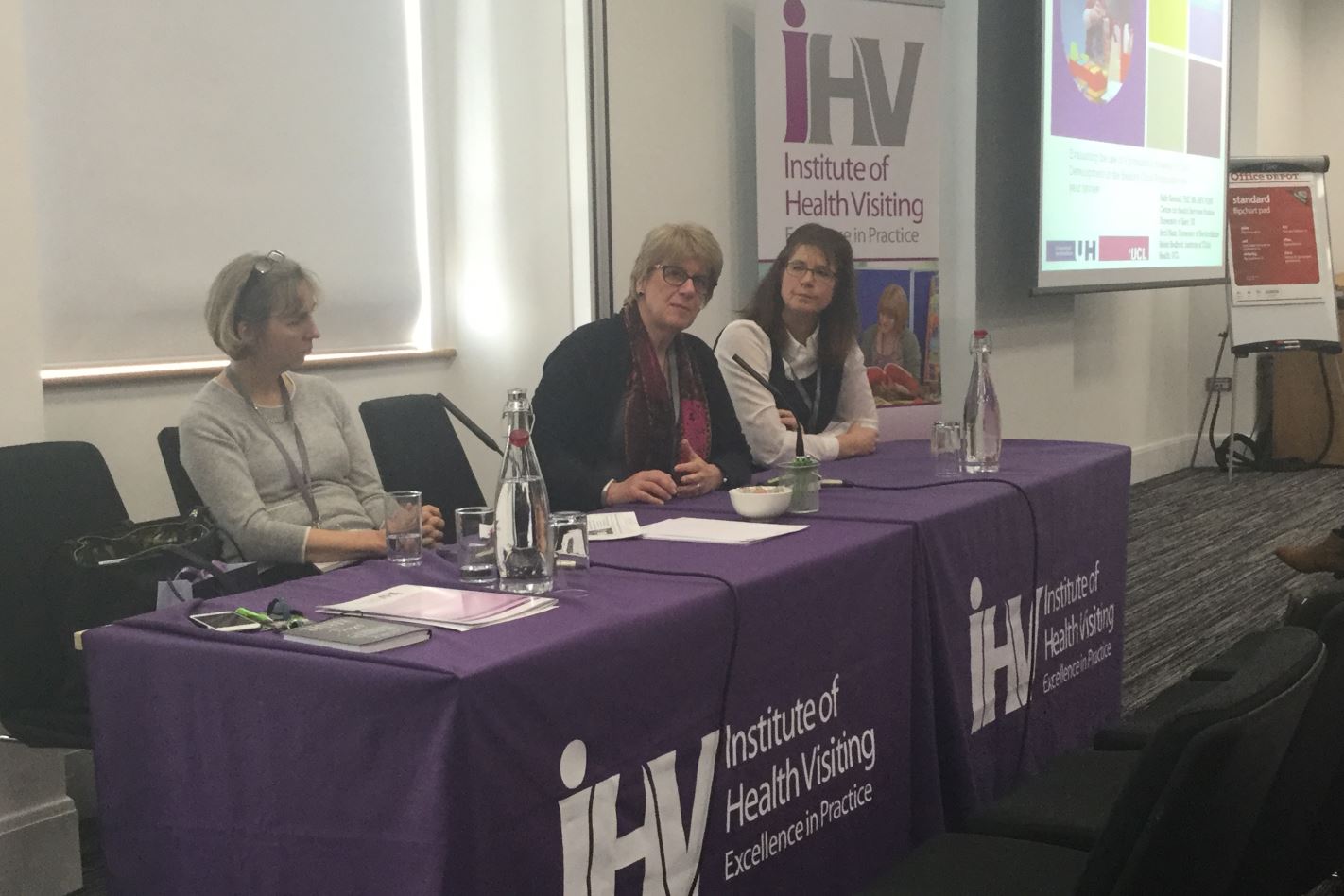The Institute of Health Visiting (iHV) and London NHS England Workforce Training and Education Directorate (NHSE WTED) launch a new report: An audit of practice education infrastructure for Specialist Community Public Health Nurses (SCPHN) in Greater London.
iHV was delighted to be awarded funding by NHSE WTED to complete an audit of practice education infrastructure for SCPHN in Greater London.
Numbers of SCPHN health visitors and school nurses have decreased by more than 40% in England and London is one of the hardest hit areas[1]. To address workforce expansion needs, the London SCPHN workforce was offered a range of training and educational programmes to support practitioner professional development and growth of a learning culture. Reversing workforce shortfalls requires action to expand and improve training opportunities. Specifically, SCPHN workforce education infrastructure was identified as an important factor which could impact on the sustainable expansion of SCPHN Student community placements across all London 0-19 provider organisations.
The iHV completed an audit of practice education infrastructure at two separate time points – when the training was introduced and 6 months later. The audits explored whether targeted investments in practitioner development had been matched with an upturn in the organisational learning culture and infrastructure to support learning. The audit questions were framed using the four levels of learning (reaction, learning, behaviour, results) from the Kirkpatrick Evaluation Model[2].
Key findings from the audit included:
- Improvements were seen in the learning environment across the duration of the project.
- There is evidence to suggest that the education infrastructure and learning culture within London has been strengthened with:
- Practitioners reporting greater use of learning in practice over time
- Examples of perceived ability to provide better care
- Improved professional development
- Improved job satisfaction
- An improved learning environment.
- Factors considered important to support learning in practice included:
- Supervision and a supportive learning environment
- Embedding learning for impact
- Improved time and capacity for practitioners to participate in Continuous Professional Development (CPD).
Our findings have been presented in a report and summarised into two engaging infographics. Whilst this audit has provided information on the unique context of the SCPHN workforce in London, it is also hoped that the findings will provide transferable learning to SCPHN providers across the UK who may be experiencing similar workforce issues.
You can view the report and infographics here
(to cite this report, please use this link https://bit.ly/3Y4rw3E).
The Audit for Education project forms part of a wider commissioned piece of work with London NHSE WTED which includes the student SCPHN recruitment pathway development review and a charter for enabling a good learning environment.
Nicky Brown, Senior Nurse for CYP OHID London, said:
“It has been such a pleasure working within the London system to develop the role of specialist public health nurses and their teams. This project has enabled London’s 0-19 Public Health Nursing workforce to explore areas of development in their own practice and the way they learn and teach others. It is hoped that this project is the beginning of an integrated approach to learning and development for all qualified health visitors and school nurses and their teams across London.”.
Caroline Ward, Clinical Workforce Transformation Manager – Maternity and Neonates, Children and Young People, Public Health and Community Nursing and Return to Practice, said:
“I am so pleased that I was able to achieve funding through legacy HEE to support such a vital piece of work. A well-trained and sustainable specialist community public health nursing workforce supply is vital to improving the health and wellbeing of our children, young people and families in London. Working with our London systems and service providers is key to the project’s philosophy to enable those who recognise the huge workforce challenges to be supported to work together with us to find solutions and ultimately make a difference within London and beyond.”
Jenny Gilmour, Lead for NHSE WTE London Improving SCPHN (HV/SN) Education Infrastructure and SCPHN Student Expansion Project, said:
“It has been a pleasure to work with the iHV to lead on the Audit of Education as evaluation of this important opportunity to invest in improving the SCPHN Education Infrastructure across London. The report evaluates the impact of the initiative within the current SCPHN workforce. And these results are positive, as evidence suggests that the current workforce, despite the very real pressures of achieving service delivery, has risen to the challenge. As a result, the SCPHN workforce has been prepared, and is ready and able to improve the quality of SCPHN student placements, as well as support expansion across London 0-19 Provider Organisations over the next few years as required under the NHS Long Term Workforce plans.”
Georgina Mayes – iHV Health Visiting Professional Lead (Quality and Policy) said:
“I was delighted to lead on this very important project which has the experiences of London SCPHN practitioners at its heart. SCPHN workforce shortages are of national concern and this project showcases how increasing and improving training opportunities can support professional development and growth of a learning culture which in turn can address SCPHN workforce expansion needs. I’m excited to see how our recommendations will be translated into practice.”
We would like to say a heartfelt thank you to London NHS England Workforce Training and Education Directorate (NHSE WTED) for their generous funding of this project, and to OHID London and the Chief Public Health Nursing Directorate (DHSC) for their professional advice. We would also like to thank the survey respondents, co-design workshop participants for generously sharing their experiences and insights with us, and to members of the iHV Health Visiting Advisory Forum (HVAF) who tested the audit survey.
(to cite this report, please use this link https://bit.ly/3Y4rw3E).
References
[1]NHS Digital Source: NHS Digital. NHS Hospital & Community Health Service (HCHS) monthly workforce statistics October 2023. 2024. [accessed 23 April 2024]. Available from: https://bit.ly/3JUw3h6
[2] Kirkpatrick Partners (2024) Demonstrate Training Effectiveness with The Kirkpatrick Model. 2024. [accessed 23 April 2024]. Available from: https://bit.ly/44wd5H6


